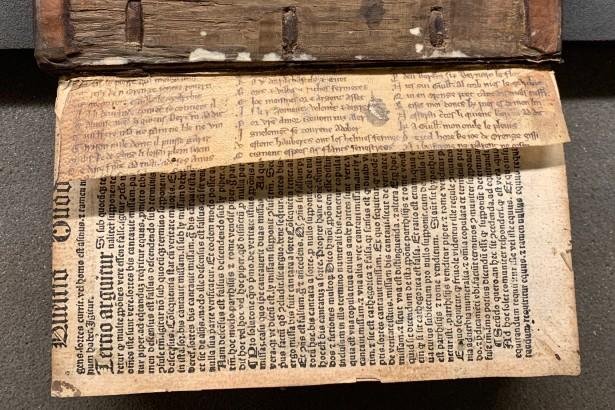The poem tells the story of the siege of Orange, a city in the Rhone Valley, and is part of a cycle of epic narrative poems about the legendary hero Guillaume d'Orange.
Atkin said scholars had long known about the poem's existence, but it was believed to be lost until the discovery of the fragment, which she said appears to come from a copy printed in England in the late 13th century.
"The discovery of the fragment we now have fills an important gap in the poetic biography of the epic hero. This is a most exciting addition to the corpus of medieval French epic poetry," Philip Bennett, an expert on d'Orange from the University of Edinburgh, told The Guardian.
Atkin said the same book also included a fragment from Beroul's Roman de Tristan, an early telling of the medieval romance story of Tristan and Iseult.
She said the fragment was published in the 12th century, and contains significant differences from the only other known copy of the poem, an incomplete 13th-century manuscript housed at the Bibliotheque Nationale de France.
"It's fantastically exciting to discover something that's been lost all this time, but I do think it is also worth simultaneously holding the thought that actually, the only reason these fragments have survived is because at some point, someone thought the manuscripts in which they appeared were not valuable as anything other than waste," Atkin said.
"There's a sort of lovely tension in that, I think."
Read More
- Topics
- Queen Mary















